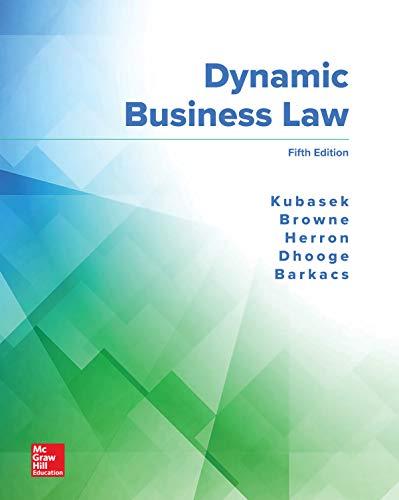Kelly Sr. had saved a significant amount of money. When he was 93, he fell and broke
Question:
Kelly Sr. had saved a significant amount of money. When he was 93, he fell and broke his hip, so he moved to a rehabilitation center. He thought he was going to die. According to one son, Kelly Sr. expressed a desire to divide his assets equally between his two sons because he needed to get rid of his assets so he could move to the VA hospital, a claim Kelly Sr. denied, stating that he would have never given away his assets before his death. During December of 2013, the sons cashed checks for $100,000 from two of the father’s accounts, and the father signed a transfer document ceding his Wells Fargo assets to his sons. The father’s condition improved, and he was released from the rehab facility and moved in with his adopted daughter and her husband, who modified their home to accommodate him and also facilitated visits from the boys. During one visit, Kelly Jr. said he wished his dad would hurry up and die. Kelly Sr. subsequently checked his bank statements for the first time since his fall and discovered that his sons had “just about cleaned [him] out.” He did not remember signing any checks or transfer documents, and he assumed his son Kelly Jr.’s wife was responsible for them, but had no proof. The father then hired a lawyer and contacted the banks to get them to restrict any further transfers of his funds. The sons then filed suit, seeking to require Wells Fargo to release their father’s funds to them. The father and the bank opposed the action, and both sides filed motions for summary judgment. How do you think the court ruled on these motions? How would the type of gift the father was found to be giving be important in this case?
Step by Step Answer:

Dynamic Business Law
ISBN: 9781260247893
5th Edition
Authors: Nancy Kubasek, M. Neil Browne, Daniel Herron, Lucien Dhooge, Linda Barkacs





